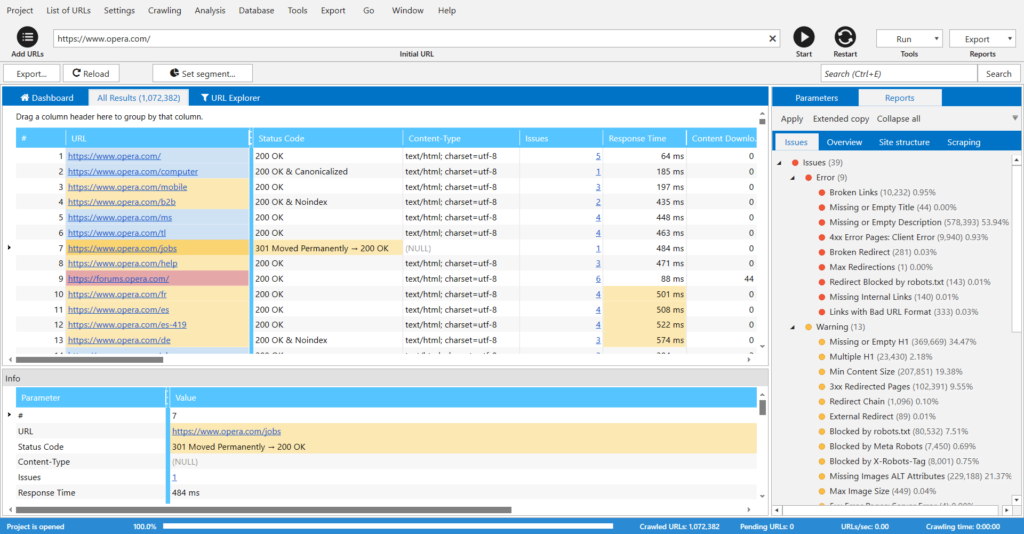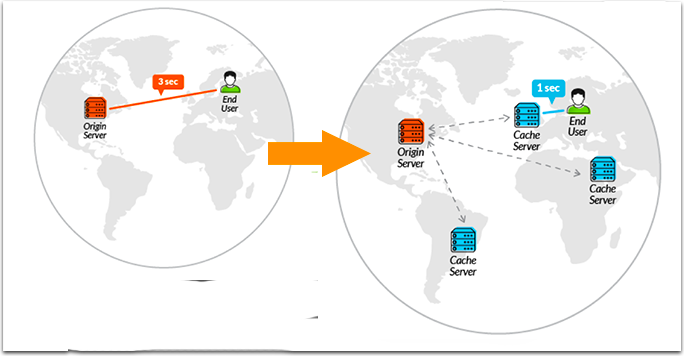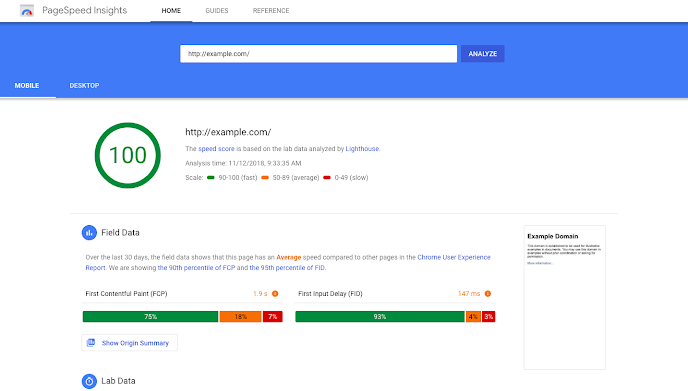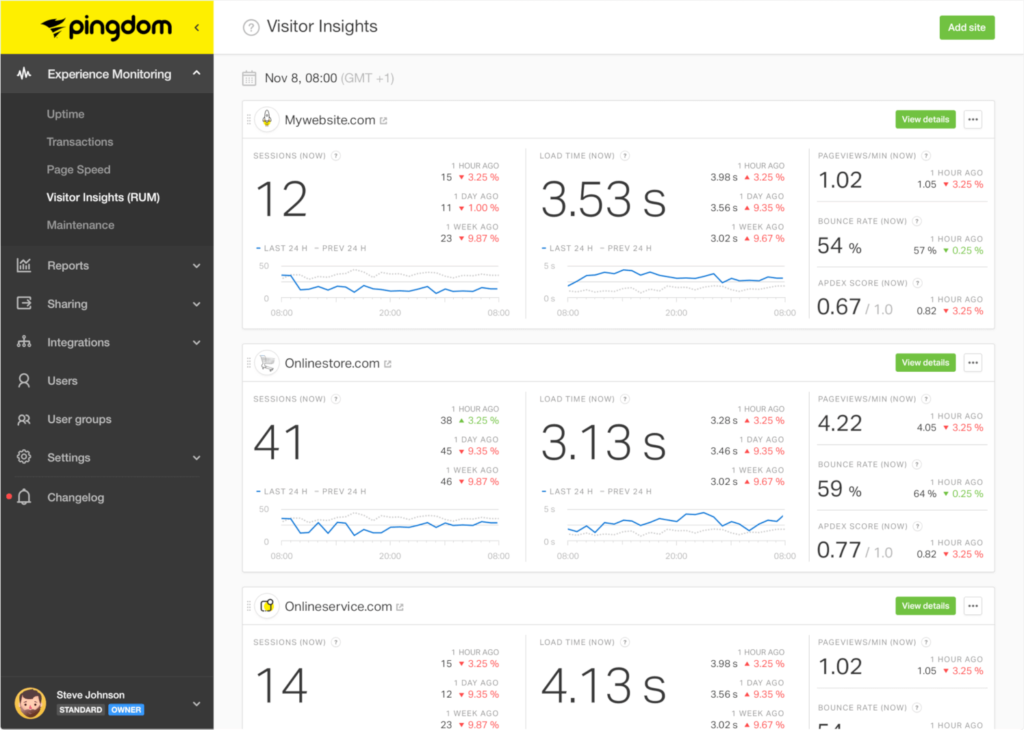
Increasing website page speed is one of the biggest challenges digital marketers face. It’s too technical for marketers to appreciate the work scope, yet it’s crucial for almost all aspects of marketing performance.
Over the years, it has become abundantly clear that there is a direct correlation between page speed, bounce rate and visitor retention. Furthermore, Google’s official statement is that page speed impacts their ranking algorithm (and hence helps or hinders your online visibility).
Monitoring and improving website page speed should be the highest priority for any website.
Let’s look at just a few numbers:
Impact on on-page engagement: Sites that load in 5 seconds (compared to those that load in 19 seconds) see 70% longer average sessions.
Sites that load in 5 seconds (compared to those that load in 19 seconds) see 70% longer average sessions. Click To Tweet
Impact on conversions: Studies in the UK show that 67% of online shoppers will abandon their carts on slow websites. Improving a page’s load time by one second can result in an increase of between 10% and 20% in conversion rates.
Improving a page’s load time by one second can result in an increase of between 10% and 20% in conversion rates. #CRO Click To Tweet
Impact on customer loyalty: Roughly 80% of online shoppers who have trouble loading a site say they won’t return to the site to buy again (source).
Here is how to improve website page speed and maximize the true potential of your website:
Step 1: Reduce Redirects
You will have more HTTP requests on your site if you have many redirects, and this could result in reduced page speed. Broken links should also be fixed as these can have a massive impact on user experiences.
Netpeak Spider is a great tool allowing to quickly find redundant redirects, broken links and redirect chains. Run the tool and then fix all it could find, including:
- Fix internal linking to point to the working URL (i.e. the https version), even if the old URL properly redirected to the new version.
- Get rid of redirect chains — they are a series of redirects that bring you from one version to another version. All those extra steps slow down your site.
Impact on conversions: Broken links and redirects may prevent a lot of your site users from following your sales funnel. Make sure to monitor and fix broken links and redirects in a timely manner.

Netpeak Spider is a great tool that helps you increase page speed by finding redundant redirects, broken links and redirect chains.
Step 2: Consider Using a Content Distribution Network
A Content Distribution Network (CDN) consists of multiple data centers, with each making a copy of a specific website. These copies are stored into multiple geographical locations, providing users with more reliable and faster access to the site.
This tip is especially important for global businesses that receive a lot of traffic and conversions around the world.

A Content Distribution Network will help you increase website page speed across the glove.
Impact on conversions: A slow website will make your overseas customers give up on your website entirely. Monitor and improve your global performance with a Content Distribution Network.
Step 3: Remove Render-Blocking Javascripts
When looking at your website structure, refrain from using render-blocking Javascript (i.e. Javascript that prevents your page from rendering, i.e. loading), especially external scripts that have to be fetched before being executed.
Scripts that don’t need to be rendered immediately should be made asynchronous, or deferred until after the first render.
This is especially important for above-the-fold part of your page (the part that a user sees first).

Scripts that are above the fold and don’t need to be rendered immediately should be made asynchronous, or deferred until after the first render.
Obviously, use Google’s tools to spot which scripts and page elements slow your pages down.

Use Google’s Page Speed insights to find opportunities to speed up your website.
Impact on conversions: Most traffic and conversion analytics platforms are installed using a javascript code. Make sure yours aren’t slowing your website down. Finteza is an independent analytics company that leverages that has no impact on your site performance — their event tracking doesn’t use any code at all!
The main tracking script (downloaded from the Finteza server) is inserted into the page asynchronously — independently of other elements. Thus, Finteza’s script does not slow down page loading.
Step 4: Leverage Browser Caching
When users visit a website, it builds a cache that contains information about Javascripts, images, stylesheets and more. This is done so that when a visitor comes back, the entire page doesn’t have to be reloaded.
This improves page speed, as it saves on time spent having to send multiple HTTP requests to the server. It also reduces the bandwidth and as a result, the overall cost of site hosting.
Impact on conversions: It is a well-known fact that return customers bring highest revenue, so this method ensures your return visitors receive a better experience.
5. Improve Server Response Time
Many factors can affect server response time, including the volume of traffic, the type of software used by the server and the hosting solution used.
As a general guideline, the server response time should be less than 200ms. This can be achieved by looking at different performance metrics and paying attention to things such as slow database requests, lack of memory or slow routing.
Use monitoring tools to evaluate your server performance:

Use monitoring tools like Kingdom to evaluate your server performance.
Impact on conversions: By monitoring your server performance properly, you’ll know whether there are any issues preventing people from interacting with your site properly (e.g. downtime, slow-downs, etc.)
Conclusion
There are many benefits of improving website page load speed, and they can be broadly divided into three main areas:
1. Better User Experience
- Users nowadays are quick to simply abandon a website if it does not perform as well as they expect, especially if the pages take too long to load. If you have pages that load quickly, this will appeal to more users and give them the opportunity to explore your website content.
- Google research shows that a one second delay in page load time will decrease user’s satisfaction by as much as 16%, while a massive 79% of users will not purchase products or services from websites where the overall speed performance does not meet their expectations.
Google research shows that a one second delay in page load time will decrease user’s satisfaction by as much as 16%. Click To Tweet
2. Better Marketing Results
- If your aim is to achieve more website traffic to specific pages, such as a new blog post or your best sellers’ page, page speed should definitely be taken into consideration.
- Whether you want to improve the overall conversion rate for specific pages or reduce the bounce rate sitewide, there is enough evidence to show that a fast website contributes greatly towards reaching these goals.
3. Higher Google Rankings
According to Google, a half a second delay could cause a traffic loss of 20%.
From Google’s perspective, pages that take long to load will result in search engine bots not being able to crawl as many pages, which leads to Google not being able to use its crawl budget effectively. This could potentially have a negative effect on your website’s organic performance.
Furthermore, Google’s algorithm officially takes the overall website speed and page loading time into account, making page speed optimization vital if you want to stand a chance to rank higher in the SERPs.
Let’s make the world wide web faster!
